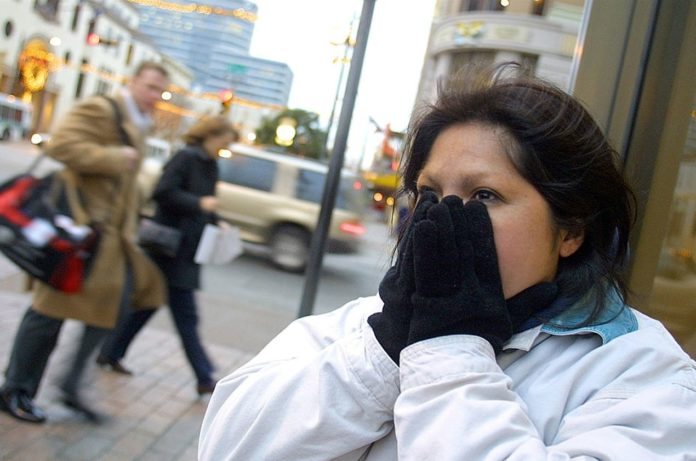People become more susceptible to colds as they age, as well as inflammation and metabolic issues, which can lead to a variety of chronic diseases.
One culprit in this process has been identified by researchers: the same immune cells present within fat that are supposed to defend humans against cold temperatures.
With the ability to generate heat from fat stored in the body, human evolution has equipped us with a measure of protection from the existential threat of cold temperature.
However, as people become older, they become more prone to colds, as well as inflammation and metabolic issues, which can lead to a variety of chronic diseases.
In a new study, researchers discovered that the fat tissue of elderly mice lacks the immune cell group 2 innate lymphoid cells (ILC2), which are responsible for restoring body heat in the presence of low temperatures.
However, in a cautionary tale for those seeking simple cures for aging-related disorders, they discovered that encouraging the development of new ILC2 cells in ageing mice also renders them more susceptible to cold-induced death.
“What is good for you when you are young, can become detrimental to you as you age,” said the co-corresponding author Vishwa Deep Dixit.
Dixit and his former colleague Emily Goldberg, wanted to know why adipose tissue contains immune system cells, which are normally concentrated in places frequently exposed to pathogens such as nasal passages, lungs, and skin.
When they sequenced DNA from elderly and young mice cells, they discovered that older animals lacked ILC2 cells, limiting their ability to burn fat and raise their body temperature in cold settings.
When scientists gave ageing mice a molecule that increases ILC2 synthesis, the immune system cells were restored, but the mice were surprisingly less tolerant of low temperatures.
“The simple assumption is that if we restore something that is lost, then we are also going to restore life back to normal,” said the co-author.
“But that is not what happened. Instead of expanding healthy cells of youth, the growth factor ended up multiplying the bad ILC2 cells that remained in fat of old mice.”
However, when researchers transplanted ILC2 cells from younger mice into older mice, they discovered that the older animals’ capacity to endure cold was restored.
“Immune cells play a role beyond just pathogen defense and help maintain normal metabolic functions of life,” said the researcher.
“With age, the immune system has already changed and we need to be careful how we manipulate it to restore the health of elderly.”
The findings were published in the journal Cell Metabolism.
Photo by Joe Raedle/Newsmakers via getty
